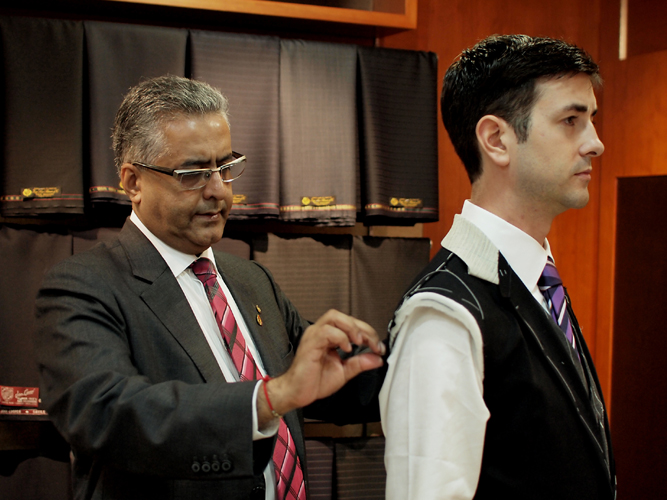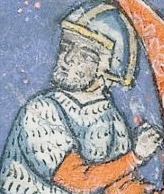|
Al-Rai, Syria
Al-Rai (, ''al-Ra'i'' or ''al-Rayi''; ), is a small town in northern Aleppo Governorate, northern Syria. With 4,609 inhabitants, as per the 2004 census, al-Rai is the administrative center of the sparsely populated Nahiya al-Rai. Located on the Istanbul-Baghdad Railway and close to the Syria–Turkey border, Turkish border, right across Elbeyli, it is however a strategically important village. The town of Akhtarin, some to the southwest. Larger towns are Azaz, some to the west, and Jarablus and Manbij, both some to the east. Prior to the Syrian Civil War, the town was inhabited primarily by Syrian Turkmen, Turkmen.Günümüzde Syrian Turkmen, Suriye Türkmenleri Suriye’de Değişimin Ortaya Çıkardığı Toplum: Suriye Türkmenleri.ORSAM Rapor № 83. ORSAM – Ortadoğu Türkmenleri Programı Rapor № 14. Ankara — November 2011. These Turkmens belong to the Elbegli tribe. Railway The Al-Rai Railway Border Gate which had been closed since 1981, was reopened on 22 Decem ... [...More Info...] [...Related Items...] OR: [Wikipedia] [Google] [Baidu] |
List Of Sovereign States
The following is a list providing an overview of sovereign states around the world with information on their status and recognition of their sovereignty. The 205 listed states can be divided into three categories based on membership within the United Nations System: 193 member states of the United Nations, UN member states, two United Nations General Assembly observers#Current non-member observers, UN General Assembly non-member observer states, and ten other states. The ''sovereignty dispute'' column indicates states having undisputed sovereignty (188 states, of which there are 187 UN member states and one UN General Assembly non-member observer state), states having disputed sovereignty (15 states, of which there are six UN member states, one UN General Assembly non-member observer state, and eight de facto states), and states having a political status of the Cook Islands and Niue, special political status (two states, both in associated state, free association with New ... [...More Info...] [...Related Items...] OR: [Wikipedia] [Google] [Baidu] |
Akhtarin
Akhtarin () is a town in northern Aleppo Governorate, northwestern Syria. The largest town and administrative centre of Nahiya Akhtarin of the A'zaz District has a population of 5,305 in the 2004 census. Located northeast of the city of Aleppo Aleppo is a city in Syria, which serves as the capital of the Aleppo Governorate, the most populous Governorates of Syria, governorate of Syria. With an estimated population of 2,098,000 residents it is Syria's largest city by urban area, and ..., nearby localities include Mare' to the southwest, Dabiq to the northwest, and Ziadiyah to the northeast. References Towns in Aleppo Governorate Populated places in Azaz District {{AleppoSY-geo-stub ... [...More Info...] [...Related Items...] OR: [Wikipedia] [Google] [Baidu] |
Ministry Of Youth And Sports (Turkey)
The Ministry of Youth and Sports of the Republic of Turkey () is a governmental agency within the Cabinet of Turkey in charge of regulating activities related to sports and youth development in Republic of Turkey. The ministry is headed by Osman Aşkın Bak. History On 29 June 1938, the Directoriate of Physical Education was established. Following the 1969 general election, in the Cabinet Süleyman Demirel II, the Ministry of Youth and Sports was formed on 3 November for the first time, and İsmet Sezgin was appointed as its first minister. After the 1983 general election, the ministry was renamed National Education, Youth and Sports on 14 December. The Ministry of Youth and Sports was re-established as an independent ministry on 29 June 2011 after the forming of Cabinet Erdoğan III. In the past, the governmental activities on youth and sports affairs were carried out by different governmental agencies subordinated to a state minister, who had also other responsibilities. ... [...More Info...] [...Related Items...] OR: [Wikipedia] [Google] [Baidu] |
Non-governmental Organization
A non-governmental organization (NGO) is an independent, typically nonprofit organization that operates outside government control, though it may get a significant percentage of its funding from government or corporate sources. NGOs often focus on humanitarian or social issues but can also include clubs and associations offering services to members. Some NGOs, like the World Economic Forum, may also act as lobby groups for corporations. Unlike international organizations (IOs), which directly interact with sovereign states and governments, NGOs are independent from them. The term as it is used today was first introduced in Article 71 of the UN Charter, Article 71 of the newly formed United Nations Charter in 1945. While there is no fixed or formal definition for what NGOs are, they are generally defined as nonprofit entities that are independent of governmental influence—although they may receive government funding. According to the United Nations Department of Global Communic ... [...More Info...] [...Related Items...] OR: [Wikipedia] [Google] [Baidu] |
Tailor
A tailor is a person who makes or alters clothing, particularly in men's clothing. The Oxford English Dictionary dates the term to the thirteenth century. History Although clothing construction goes back to prehistory, there is evidence of tailor shops in Ancient Greece and Rome, as well as tailoring tools such as irons and shears. The profession of tailor in Europe became formalized in the High Middle Ages through the establishment of guilds. Tailors' guilds instituted a system of masters, journeymen, and apprentices. Guild members established rules to limit competition and establish quality standards. In 1244, members of the tailor's guild in Bologna established statutes to govern their profession and required anyone working as a tailor to join the guild. In England, the Statute of Artificers, passed in 1563, included the profession of tailor as one of the trades that could be entered only by serving a term of apprenticeship, typically seven years. A typical tailo ... [...More Info...] [...Related Items...] OR: [Wikipedia] [Google] [Baidu] |
Shoemaking
Shoemaking is the process of making footwear. Originally, shoes were made one at a time by hand, often by groups of shoemakers, or '' cordwainers'' (sometimes misidentified as cobblers, who repair shoes rather than make them). In the 18th century, dozens or even hundreds of masters, journeymen, and apprentices (both men and women) would work together in a shop, dividing the work into individual tasks. A customer could come into a shop, be individually measured, and return to pick up their new shoes in as little as a day. Everyone needed shoes, and the median price for a pair was about one day’s wages for an average journeyman. The shoemaking trade flourished in the eighteenth and early nineteenth centuries but began to be affected by industrialization in the later nineteenth century. Traditional handicraft shoemaking has now been largely superseded in volume of shoes produced by industrial mass production of footwear, but not necessarily in quality, attention to detail, or ... [...More Info...] [...Related Items...] OR: [Wikipedia] [Google] [Baidu] |
International Union Of Railways
The International Union of Railways (, UIC) is an international rail transport industry body based in Paris. History The railways of Europe had originated during the nineteenth century as many separate concerns across numerous nations; this led to disparate and conflicting standards emerging and thus onto incompatibility. One prominent example was the British Gauge War, during which different rail transport, railway companies were laying different track gauges across Great Britain, causing inefficiency wherever a break of gauge occurred, prior to an Regulating the Gauge of Railways Act 1846, Act of Parliament the issue in 1846 by establishing one standard gauge of . The early effort towards standardisation somewhat influenced railways aboard as well, however various other track gauges persisted and developed across the world; even through to the twenty first century, incompatible track gauges, let alone other issues, persisted to hinder interoperability efforts. Several key eve ... [...More Info...] [...Related Items...] OR: [Wikipedia] [Google] [Baidu] |
Yaarub Bader
Yaarub Suleiman Bader (; born 3 June 1959) is a Syrian politician who is currently serving as Minister of Transport in the Syrian transitional government. He was previously a professor of civil engineering at Tishreen University in Latakia. He holds a PhD from the École nationale des ponts et chaussées in Paris, France. He is an Alawite. Before, Bader already had been serving as Minister of Transport from 12 February 2006 to 14 April 2011. See also *Cabinet of Syria The Council of Ministers () was first constituted in the Syrian Constitution of 1930. Following the fall of the Assad regime on 8 December 2024, Syria is currently undergoing a political transition, with Ahmed al-Sharaa leading a Syrian transiti ... References Notes 1959 births Living people Latakia University alumni École des Ponts ParisTech alumni Transport ministers of Syria Politicians from Damascus Syrian Alawites Arab Socialist Ba'ath Party – Syria Region politicians {{Syria-politici ... [...More Info...] [...Related Items...] OR: [Wikipedia] [Google] [Baidu] |
Binali Yıldırım
Binali Yıldırım (; born 20 December 1955) is a Turkish politician who served as the List of Prime Ministers of Turkey, 27th and last prime minister of Turkey from 2016 to 2018 and Speaker of the Grand National Assembly from 2018 to 2019. He was Leader of the Justice and Development Party (Turkey), Justice and Development Party (AKP) from 2016 to 2017, then becoming parliamentary leader until 2018. Yıldırım served as chairman of the board of Directors of İDO, Istanbul Fast Ferries Company (İDO) from 1994 to 2000 before being elected as an AKP Member of Parliament for Istanbul (1st electoral district), Istanbul's first electoral district during the 2002 Turkish general election, 2002 general election. He was appointed as Ministry of Transport, Maritime and Communication (Turkey), Minister of Transport by Prime Minister Abdullah Gül and continued in office after Erdoğan became prime minister in 2003. As Transport Minister, he presided over numerous projects such as Marmara ... [...More Info...] [...Related Items...] OR: [Wikipedia] [Google] [Baidu] |
Elbegli
Elbegli ( or ) is a Turkoman tribe mainly residing in Kilis, Gaziantep, and Sivas provinces in Turkey. History The tribe was mainly found around Sivas and Kemah before the Ottoman authorities resettled them near Sajur River during the 17th and 18th centuries. In mid-18th century, Carsten Niebuhr noted that the Elbeglis were 2 thousand tents in total, one half dwelling near Sivas and the other near Aleppo. They were noted to be living north of Tadef in Syria by Christian missionaries in 1862. Throughout the 18th century, smaller communities of Elbegli appeared in the Ottoman records for the regions of Adana, Antakya, Latakia, and Harran. The administrative divisions within the Ottoman Empire that Elbegli densely settled were named after the tribe. The Ottoman vilayet of Aleppo included Elbegli nahiyah and Sivas vilayet included Elbegli kaza. The Alimantar village and Elbeyli district of Kilis were later named in the honor of the tribe. Demographics In Sivas Province, Elbegl ... [...More Info...] [...Related Items...] OR: [Wikipedia] [Google] [Baidu] |
Syrian Turkmen
Syrian Turkmen, also called Syrian Turks or Syrian Turkish people (; ) are Syrian citizens of Turkish origin who mainly trace their roots to Anatolia (i.e. modern Turkey). Turkish-speaking Syrian Turkmen make up the third largest ethnic group in the country, after the Arabs and Kurds respectively.. The majority of Syrian Turkmen are the descendants of migrants who arrived in Syria during Ottoman rule (1516–1918);. however, there are also many Syrian Turkmen who are the descendants of earlier Turkish settlers that arrived during the Seljuk (1037–1194) and Mamluk (1250–1517) periods. Some estimates indicate that if Arabized Turkmen (those who no longer speak Turkish as their main language) are taken into account, they form the second-largest group in the country.. The majority of Syrian Turkmen are Sunni Muslims. Syrian Turkmen share common genealogical and linguistic ties with the Turkish people in Turkey and Iraqi Turkmen, but do not identify themselves with the Tur ... [...More Info...] [...Related Items...] OR: [Wikipedia] [Google] [Baidu] |



